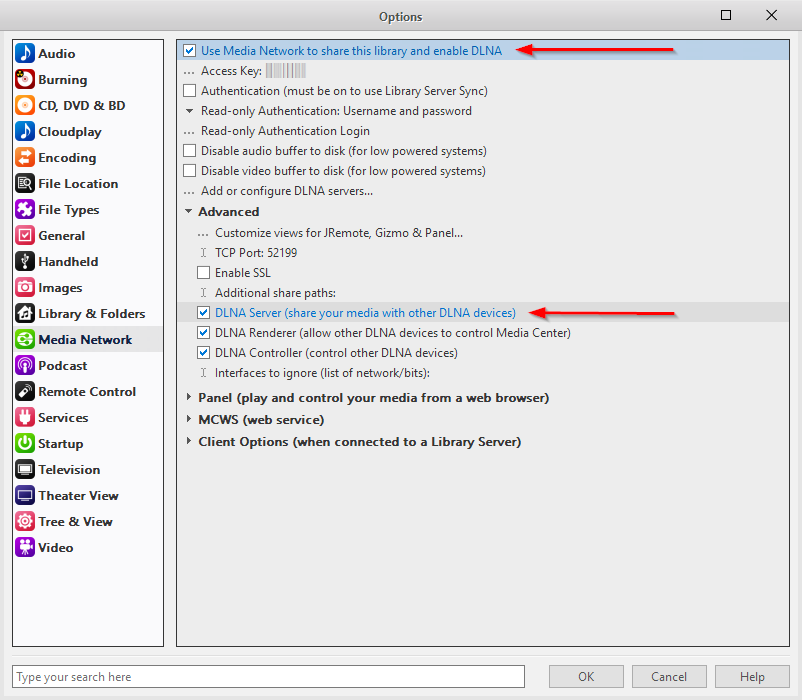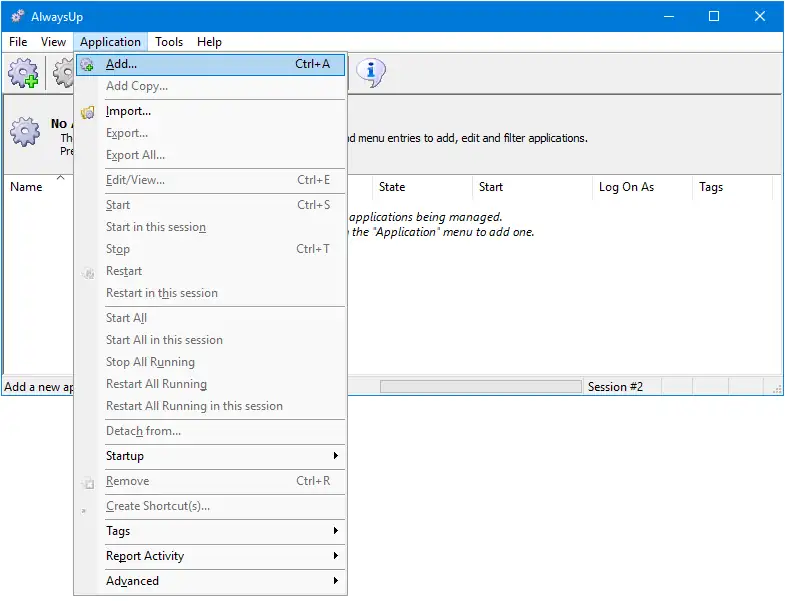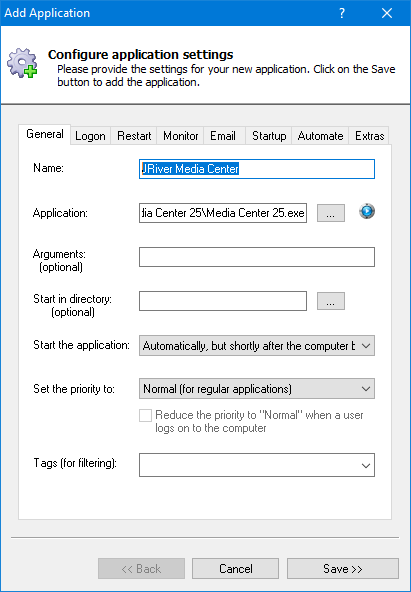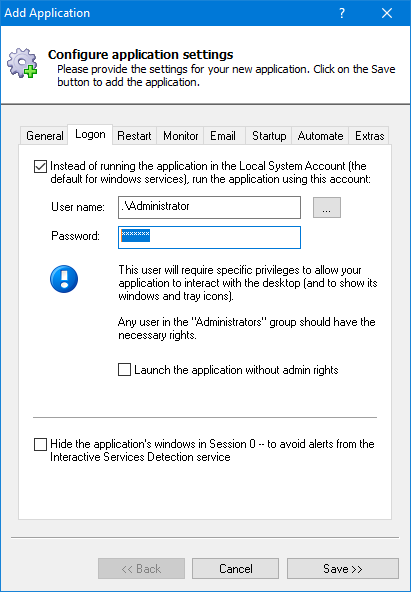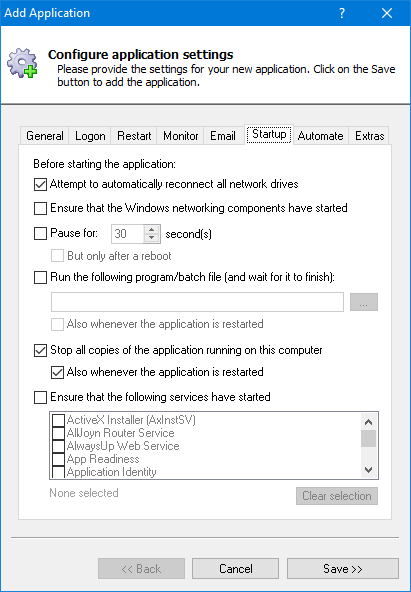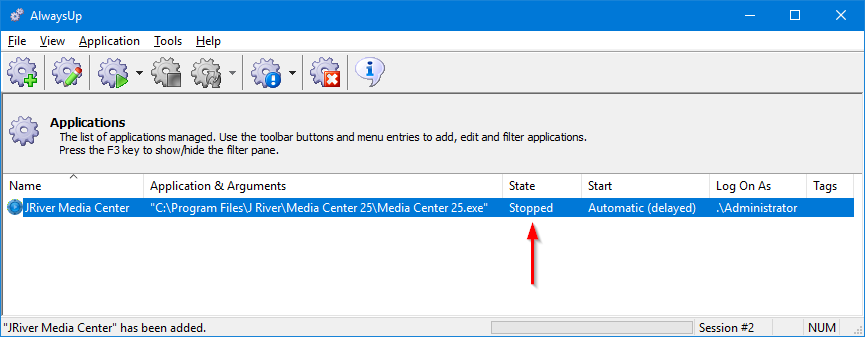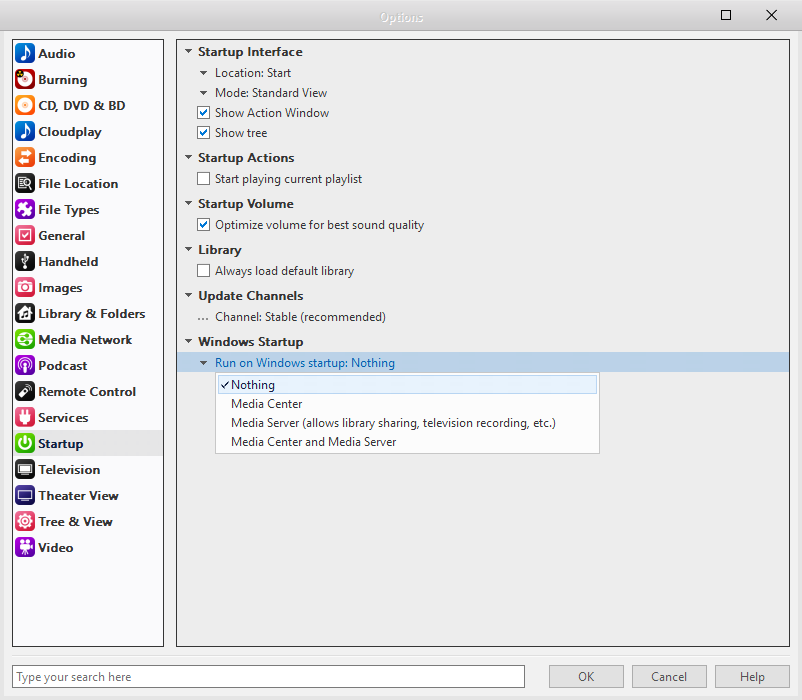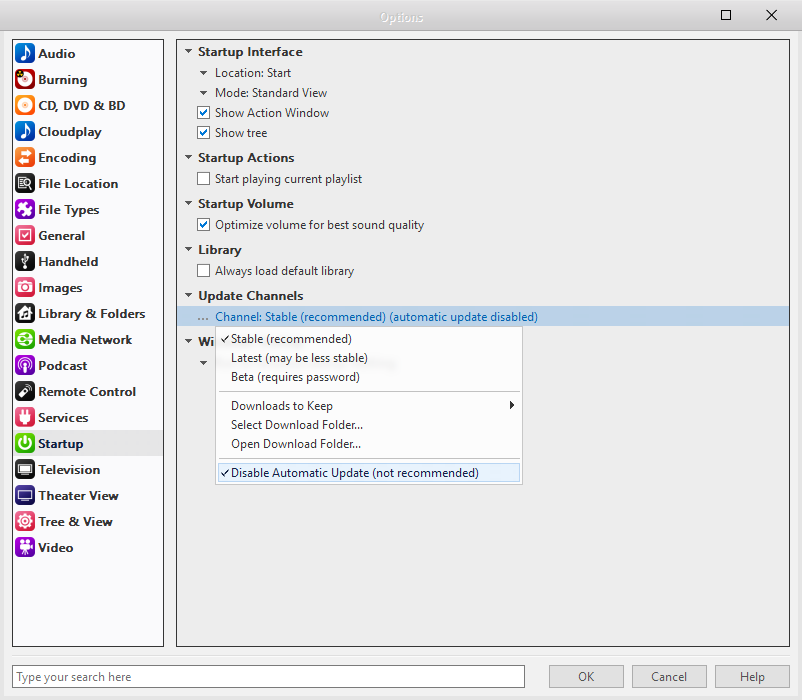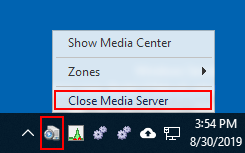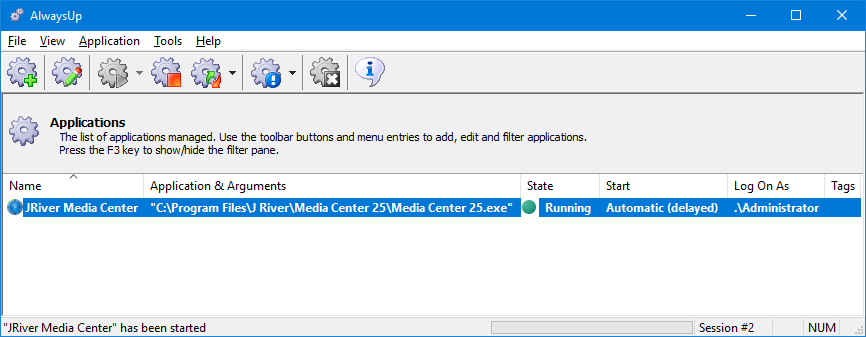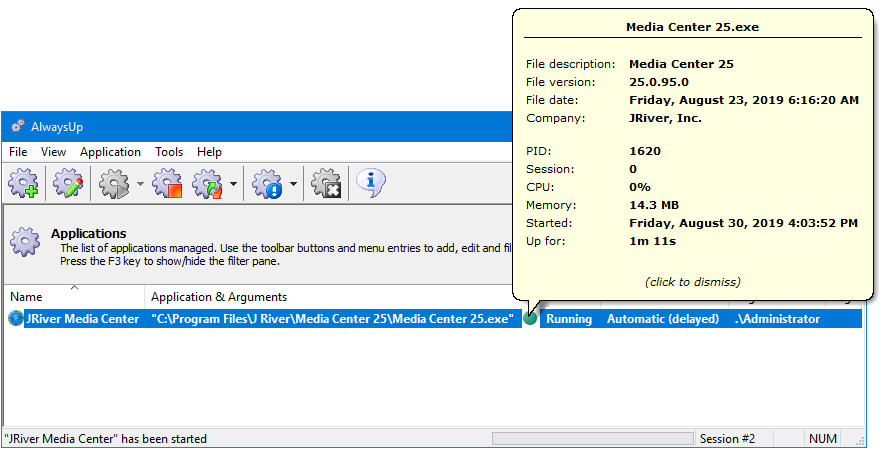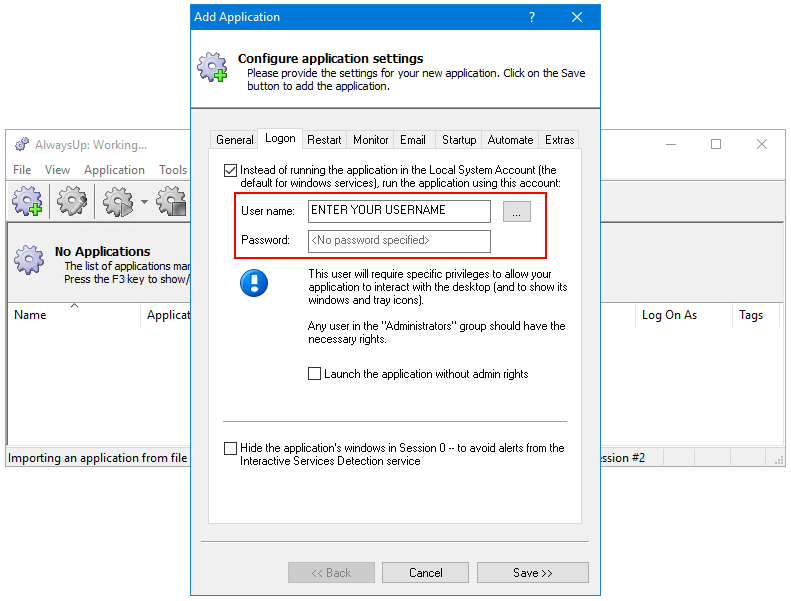
|
How to Run JRiver Media Center as a Windows Service with AlwaysUp |
Automatically start JRiver Media Center when your PC reboots, to keep serving your media 24x7 in the background. No need to log on!
JRiver Media Center plays and manages all your media.
The convenient DNLA feature allows you to stream/share your music and videos to compatible devices (such as your Android or iPhone), but it only starts after you log in.
Running Media Center as an always-on service fixes that.
To install JRiver Media Center as a Windows Service with AlwaysUp:
-
If you have not already done so, download, install and configure JRiver Media Center.
Ensure that DNLA is enabled and that the server can stream to your connected devices.
-
Download and install AlwaysUp, if necessary.
-
Start AlwaysUp.
-
Select Application > Add to open the Add Application window:
-
On the General tab:
-
In the Application field, enter the full path to the JRiver Media Center executable, Media Center 25.exe.
If you installed the 64-bit version on a 64-bit system (or 32-bit on a 32-bit system) the path will be:
C:\Program Files\J River\Media Center 25\Media Center 25.exe
Otherwise, a 32-bit installation on a 64-bit OS will have deposited the file here:
C:\Program Files (x86)\J River\Media Center 25\Media Center 25.exe
-
In the Name field, enter the name that you will call the application in AlwaysUp.
We have specified JRiver Media Center but you can specify another name if you like.
-
And in the Start the application field, choose Automatically but shortly after the computer boots.
This will cause the media server to start 2 minutes after the computer boots, when supporting services are virtually guaranteed to be up and running.
-
Click over to the Logon tab and enter the username and password of the account in which you installed and use JRiver Media Center.
The media server must run in this account to find the settings you have configured.
-
Switch to the Startup tab. Check both the Stop all copies of the application running on this computer and Also whenever the application is restarted boxes.
This will help to ensure that only a single copy of the media center is active at any time.
-
We're done configuring JRiver Media Center as a service, so click the Save button to record your settings.
In a couple of seconds, an application called JRiver Media Center will show up in the AlwaysUp window.
It is not yet running though and the state will be "Stopped":
-
Now that JRiver Media Center is setup to start automatically when your computer boots, you no longer need it to start when you log on. To deactivate that option:
Start JRiver Media Center Select Tools > Options to open the Options window Highlight Startup on the left
On the right, in the Windows Startup section, select the Nothing entry.
-
And while we're here, we recommend disabling automatic updates as well.
The last thing you want is for the media server to be hung waiting for you to confirm an update when you're not even logged on!
In the Update Channels section, activate the Disable Automatic Update option:
Click OK to save your changes. Exit JRiver Media Center. And if necessary, close the Media Server from the tray icon:
-
To start JRiver Media Center from AlwaysUp, choose Application > Start "JRiver Media Center". In a few seconds, the status will change to "Running":
Click the green circle to show the details of the running process:
Note that you won't see the JRiver Media Center window or tray icon on your desktop because the software will be running in the background, on the
isolated Session 0.
If you wish to make changes to JRiver Media Center — such as when manually updating the software to the latest version, which you should do regularly — it's best to:
Stop the service in AlwaysUp Start JRiver Media Center normally on your desktop Make (and save) your changes Exit JRiver Media Center Start the service in AlwaysUp
You can also bring the software onto your desktop by selecting Application > Start "JRiver Media Center" in this session from AlwaysUp.
-
That's it! Next time your computer boots, JRiver Media Center will start up immediately, in the background, without anyone needing to log on.
Please restart your PC now and test that the media server works as expected after Windows comes back to life.
And please feel free to edit JRiver Media Center in AlwaysUp to check out the many other settings that may be appropriate for your environment.
For example, send email alerts if it stops, restart the server nightly to cure memory leaks, boost JRiver Media Center's priority, and much more.
Download & Import the JRiver Media Center Settings File
For your convenience, we have provided an AlwaysUp Settings File with all the settings recommended in this guide.
To use the file:
Download JRiver-Media-Center_alwaysup.xml to your computer. Please make a note of where you save it. In AlwaysUp, select Application > Import from the menu. Choose the file you downloaded in step 1. -
Make the following adjustments in the Add Application window:
Click Save to record your new JRiver Media Center service.
JRiver Media Center not working properly as a Windows Service?
Stop the service, run JRiver on your desktop and manually update to the latest version of the software. Sometimes old versions run into problems...
Consult the AlwaysUp Troubleshooter — our online tool that can help you resolve the most common problems encountered when
running an application as a windows service.
From AlwaysUp, select Application > Report Activity > Today to bring up an HTML report detailing the interaction between AlwaysUp and JRiver Media Center.
The AlwaysUp Event Log Messages page explains the messages that may appear.
Browse the AlwaysUp FAQ for answers to commonly asked questions and troubleshooting tips.
Contact us and we will be happy to help!
|
Over 97,000 installations, and counting!
|
 |

|
Rock-solid for the past 20+ years!
|
Fully Compatible with 160+ Applications...
|

